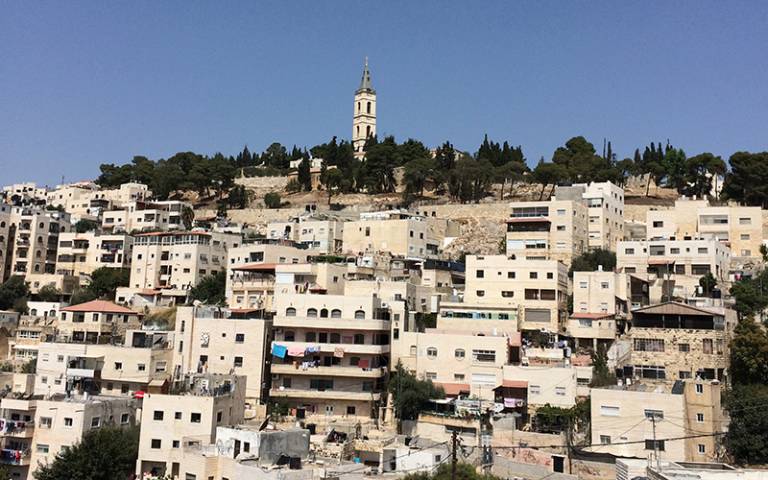
In collaboration with Graduate Program of Urban Design at
Bezalel Academy of Arts and Design
Sunday 25 to Friday 30 August 2019
Please note that the Jerusalem summerLab has not been activated this year. We are discussing future options with partners.
The city of Jerusalem is manufactured by geopolitical practices including not just military occupation but also planning policy, demographic engineering and the implementation of infrastructure that affect health and wellbeing. Yet, often these fields of studies are analysed separately, overlooking the relevance of power relations, urban planning and politics to the production of health disparities. Hence, the main purpose of this summerLab is to observe, explore and analyse the effect of conflict, violence and contestation on health and well-being of Jerusalemites, both Palestinians and Israelis. Throughout the summerLab, we will visit sites and meet people, activists and planners that will illustrate the negative effects of the conflict on health, the struggle for the right to health and the ways in which health provision and institutions might also be potential sites of positive encounters and healing.
Urban health, we will suggest, must be seen as an integrative component in the analysis of the urban as a social, political and spatial entity. Urban health in general, and in contested urban territories in particular, is contextual and multi-disciplinary, referring to the interface between specific urban elements such as housing, transportation, food supply, infrastructure, production and environmental risks and their effect on the health of individuals and communities in cities. The association between health with space will be at the core of this summerLab, by posing crucial questions such as how planning – which emerged with the objective of improving the health of urban dwellers – could return to its health-driven and social justice roots; and what new political, social and spatial processes reconnect planning and public health, with a focus on addressing the social determinants of health.
 Close
Close

